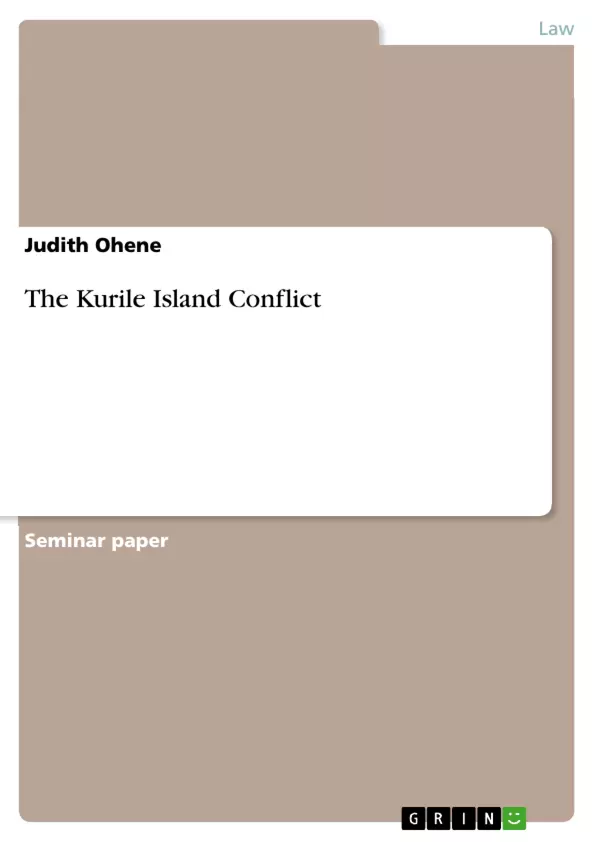In this paper the Kurile Islands Conflict between the Union of Soviet Socialist Republics and Japan dating from the 1950s is referred to the Permanent Court of Arbitration (PCA), thus representing a virtual case.
Background information to the conflict is presented in the first part of the paper,followed by the arguments supporting the cases for the USSR and Japan respectively. Both sides are described in the second chapter. The award of the tribunal of the PCA is dealt with in the third chapter, and a separate opinion of one of the judges in a short fourth chapter.
To avoid confusion the date of proceedings before the PCA is August 2004, therefore the Russian Federation is presenting the side of the former USSR.
Inhaltsverzeichnis (Table of Contents)
- Background Information
- History of Agreements and Treaties
- Reason for Transferral of the Issue to the Permanent Court of Arbitration
- Procedural aspects
- Arguments to the Dispute over the Kurile Islands Conflict
- Japan
- USSR
- Award of Tribunal
- Separate opinion of Judge Dr. Nisuke Ando, LL. M.
Zielsetzung und Themenschwerpunkte (Objectives and Key Themes)
This paper examines the Kurile Islands Conflict between the former USSR and Japan, focusing on the events dating back to the 1950s and ultimately presenting a virtual case to the Permanent Court of Arbitration (PCA). It aims to provide a comprehensive analysis of the historical background, legal arguments presented by both sides, and the potential outcome of the dispute.
- Historical context and evolution of the Kurile Islands Conflict
- Legal arguments presented by both the USSR and Japan regarding their territorial claims
- The role of international agreements and treaties in shaping the dispute
- The potential application of international law and arbitration in resolving the conflict
- The potential impact of the PCA's decision on the future of the Kurile Islands
Zusammenfassung der Kapitel (Chapter Summaries)
The first chapter delves into the historical context of the Kurile Islands Conflict, examining key agreements and treaties that shaped the territorial claims of both the USSR and Japan. It explores the historical significance of the islands, their strategic importance, and the evolving geopolitical landscape.
Chapter two presents the arguments put forward by both Japan and the USSR regarding their respective territorial claims. It examines their legal justifications, historical interpretations, and potential legal frameworks for resolving the dispute.
Chapter three focuses on the potential outcome of the dispute, examining how the PCA might rule on the matter based on the arguments presented by both parties and the applicable legal framework.
Schlüsselwörter (Keywords)
The key terms and concepts explored in this paper include the Kurile Islands Conflict, the Permanent Court of Arbitration, historical treaties and agreements, territorial claims, international law, and the potential application of arbitration in resolving international disputes.
- Citation du texte
- Judith Ohene (Auteur), 2004, The Kurile Island Conflict, Munich, GRIN Verlag, https://www.grin.com/document/110446



